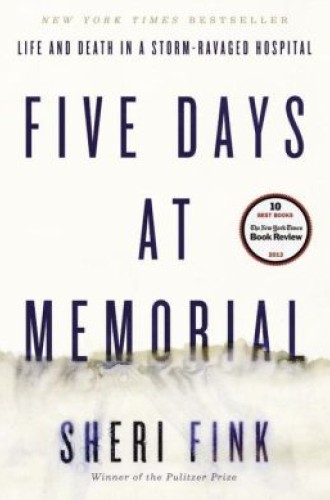Lethal prescription
Five Days at Memorial is a descent into hell—Memorial Medical Center in New Orleans during and after Hurricane Katrina. After six years of interviews and painstaking research, Sheri Fink has composed a harrowing, deeply disturbing narrative of overwhelmed health-care workers in a hospital under siege, of an inept corporation (Tenet Healthcare), and of socially unjust acts committed by medical personnel that resulted in more than 20 patient deaths by euthanasia.
The book is a tour de force in which we witness the rapid disintegration of 21st-century medical care and the frightening collapse of the basic moral standards of doctors and nurses who ended the lives of patients they were sworn to protect. By page 200 we have had enough of the heat, stench and death at Memorial, and we beg for the story to end. It continues. Fink piles disgusting detail on top of tragic event as the waters rise, the lights go out, food and water become scarce, and human decency evaporates. Fink not only reports what happened at the hospital but forces us to be there, to stand amid the rubble, to stare at the breakdown of humanity and ask, “What would I have done if I had been there?”
Fink’s mass of excruciating details of slipshod triage and bungled evacuations tempt the reader to empathize with the overstressed doctors and nurses at Memorial. And yet the truth of what happened there is so tragic that if we sympathize, we risk complicity in evil. Fink refuses to allow us to explain away or excuse the reprehensible chain of events. There are few justifications or rationalizations as we watch a doctor, Anna Pou, directing nurses to go through the halls of the hospital with syringes of morphine and deadly sedatives to end the lives of patients they deemed unworthy of further treatment.





